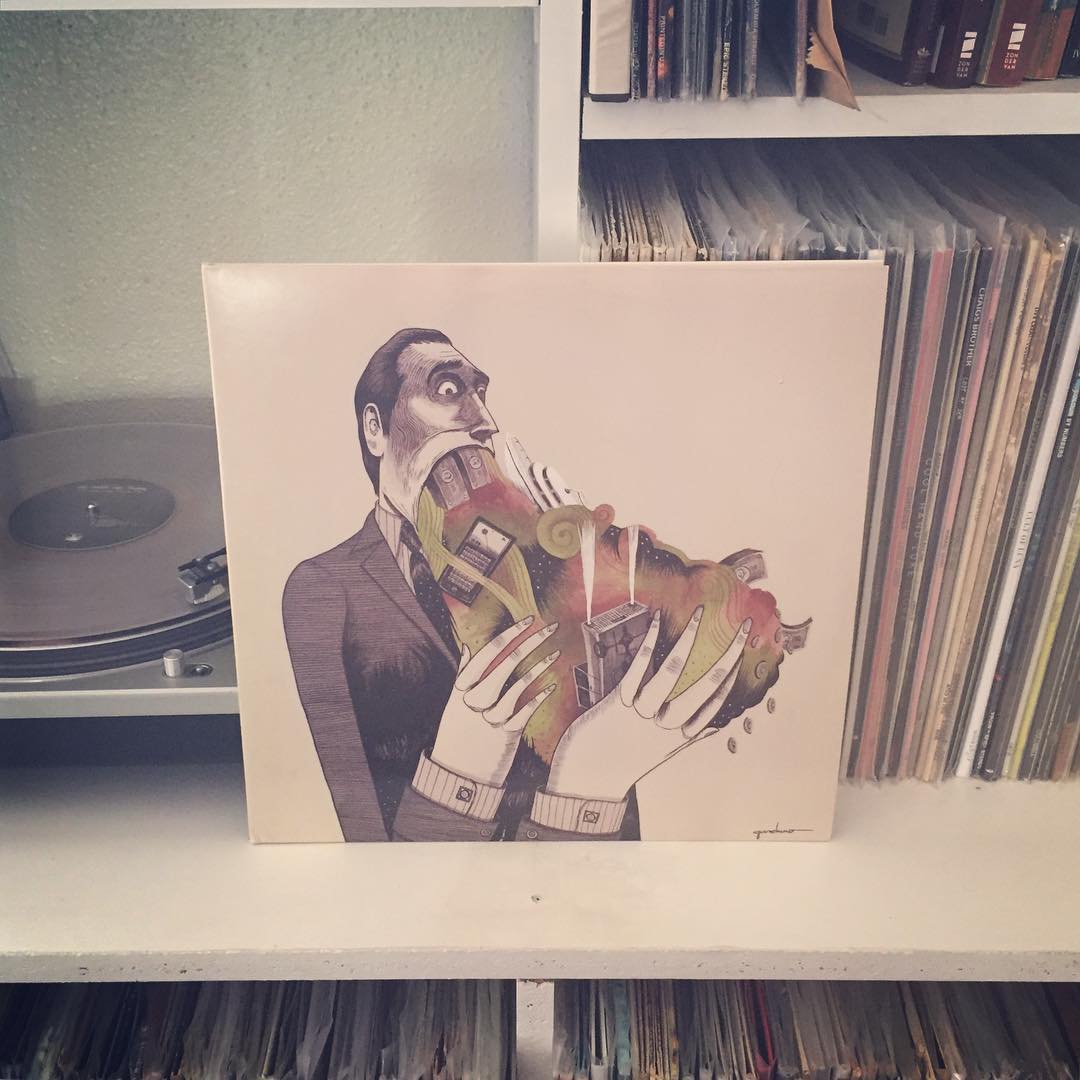 Often, when a band jumps between genres, it betrays a lack of self-awareness—a sign that they have no idea what their voice sounds like.
Often, when a band jumps between genres, it betrays a lack of self-awareness—a sign that they have no idea what their voice sounds like.
But on As Tall As Lion’s swan song, that couldn’t be further from the truth.
 Often, when a band jumps between genres, it betrays a lack of self-awareness—a sign that they have no idea what their voice sounds like.
Often, when a band jumps between genres, it betrays a lack of self-awareness—a sign that they have no idea what their voice sounds like.
But on As Tall As Lion’s swan song, that couldn’t be further from the truth.
 I grew up in a blended family—between my siblings and step-siblings, there were five teens and tweens that our parents had to wrangle together.
I grew up in a blended family—between my siblings and step-siblings, there were five teens and tweens that our parents had to wrangle together.
Finding something that seven people all agree on is a trial of Herculean proportions. To that end, Whatever and Ever Amen was a godsend in my family.


 The Jesus and Mary Chain were not the first band to turn their guitars into an onslaught of feedback and sing surprisingly sweet pop songs without affect (see also: The Velvet Underground, The Ramones, Sonic Youth).
The Jesus and Mary Chain were not the first band to turn their guitars into an onslaught of feedback and sing surprisingly sweet pop songs without affect (see also: The Velvet Underground, The Ramones, Sonic Youth).
But something about JMC’s debut pricked a hole in the swelling bubble of likeminded artists that became the shoegaze scene. Continue reading
To say that Beck is one of the most celebrated artists of the last twenty years is a bit of a misnomer. Beck is in fact three or four separate artists fighting for power. You have the hip hop ironist (Mellow Gold, Odelay, The Information), the rock & roll archivist and experimentalist (the Record Club, the Song Book), pop classicist (Guero, Midnight Vultures), and space-bound, heart-rending singer-songwriter (Sea Change). Of all of Beck’s faces, his earnest face has always been my favorite. Sea Change is one of my favorite records of all time, its tender ballads paired with Nigel Godrich’s ambient production. And as much as I love The Information, and Guero and the like, I’ve long wished for a return to Sea Change’s earnestness. This year, Mr. Hansen delivered.
I’ve sat staring at the blinking cursor for about twelve minutes trying to decide how to start this post off. Because what can you say about Grace?
As I mentioned earlier, Embryonic was the first Lips record I ever heard. Admittedly, it’s hardly the most conventional place to start with their expansive discography–far removed from Yoshimi’s space folk and The Soft Bulletin’s wide eyed optimism, and even further from the trippy drug punk from the earliest days.
Too often, The Soft Bulletin’s significance is attributed to the creative leap forward it was for the Flaming Lips. It marked the moment the acid-dropping punks decided to get serious and make some seriously beautiful pop music.
And while that’s true, it discounts the strength the album holds on its own…
Personally, the first Lips record I ever heard was 2009’s Embryonic, which played more like the psychedelic soundtrack to a 1950’s sci-fi horror movie than anything the Flaming Lips would have turned out.
And that, along with “Do You Realize,” “She Don’t Use Jelly,” and the Postal Service’s cover of “Suddenly Everything has Changed” were my context for hearing this record.
And I instantly loved it.
The urgent, overdriven drums, the synth strings, the sprinkling harp, the extended instrumental passages, and Wayne Coyne’s shaking, wild-eyed voice that ties everything together. It’s an album of unveiled optimism, young love, friendship, and occasionally drugs (this is the Flaming Lips, isn’t it?) that begs the listener to live and be alive, even in the face of hopelessness.
And fourteen years later, there hasn’t been much to rival moments like the opening strains of “The Race for the Prize” or the instrumental groove in “The Spark that Bled” or the closing crescendo of “Feeling Yourself Disintegrate.” It’s an absolute classic, regardless of its context in the Flaming Lips’ or anyone else’s discography.